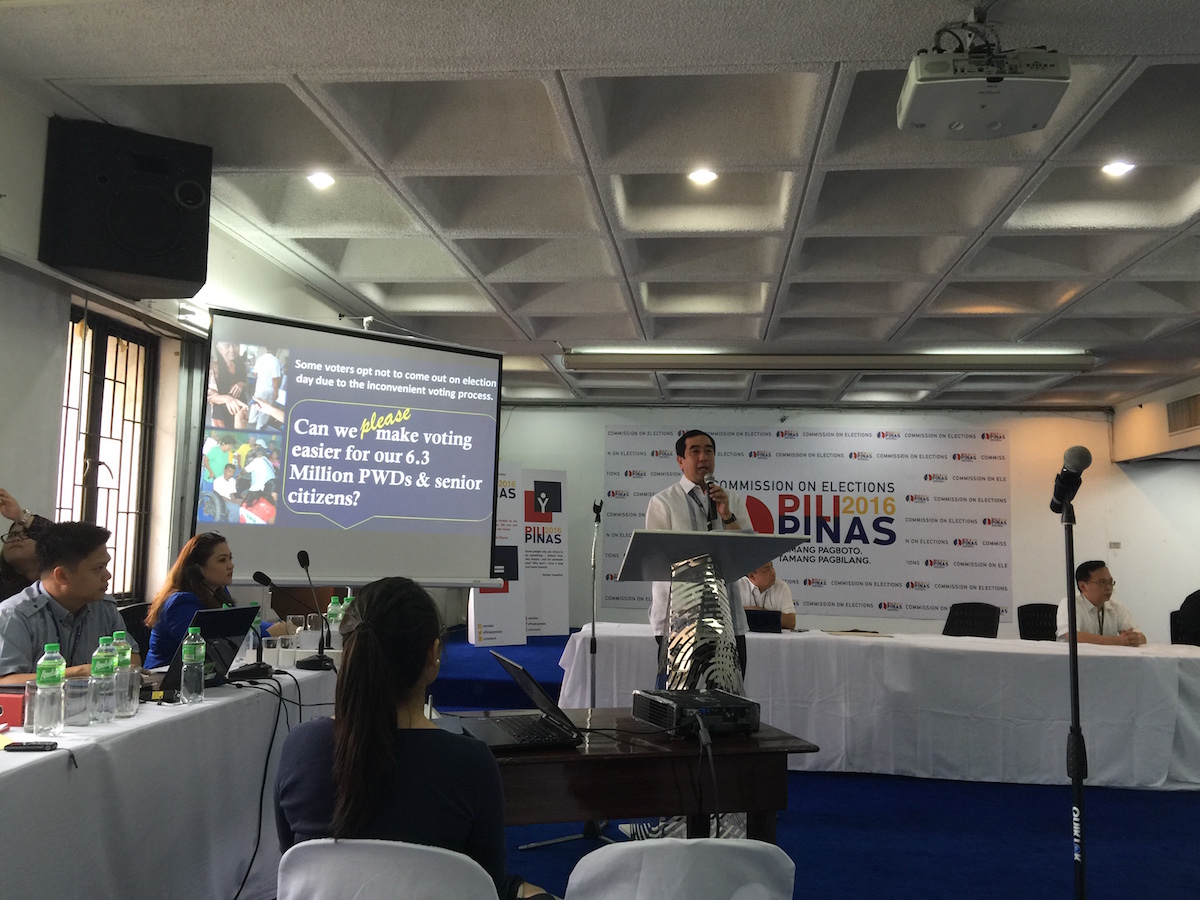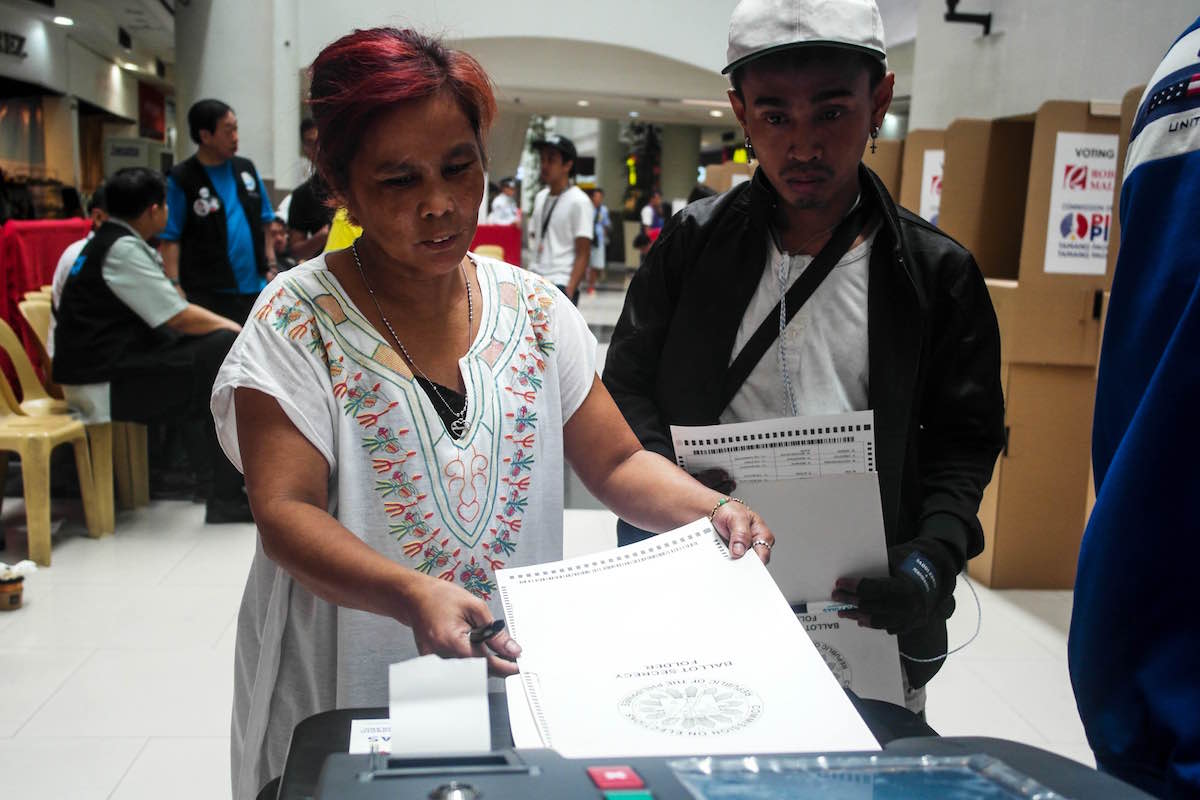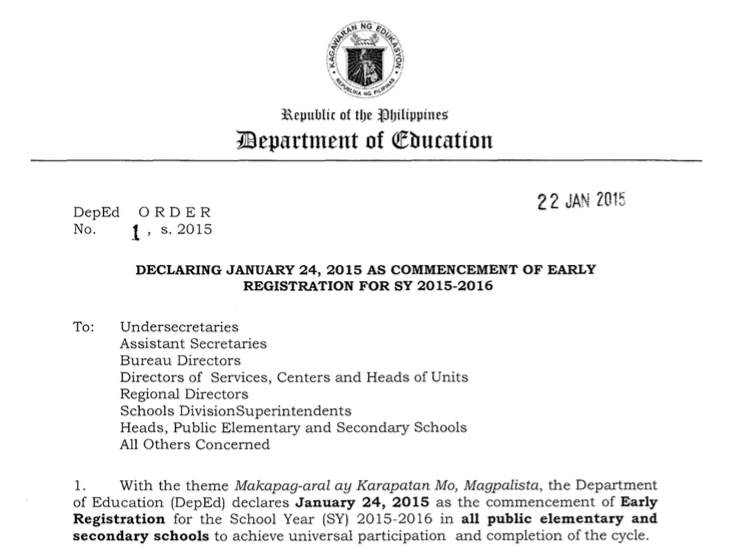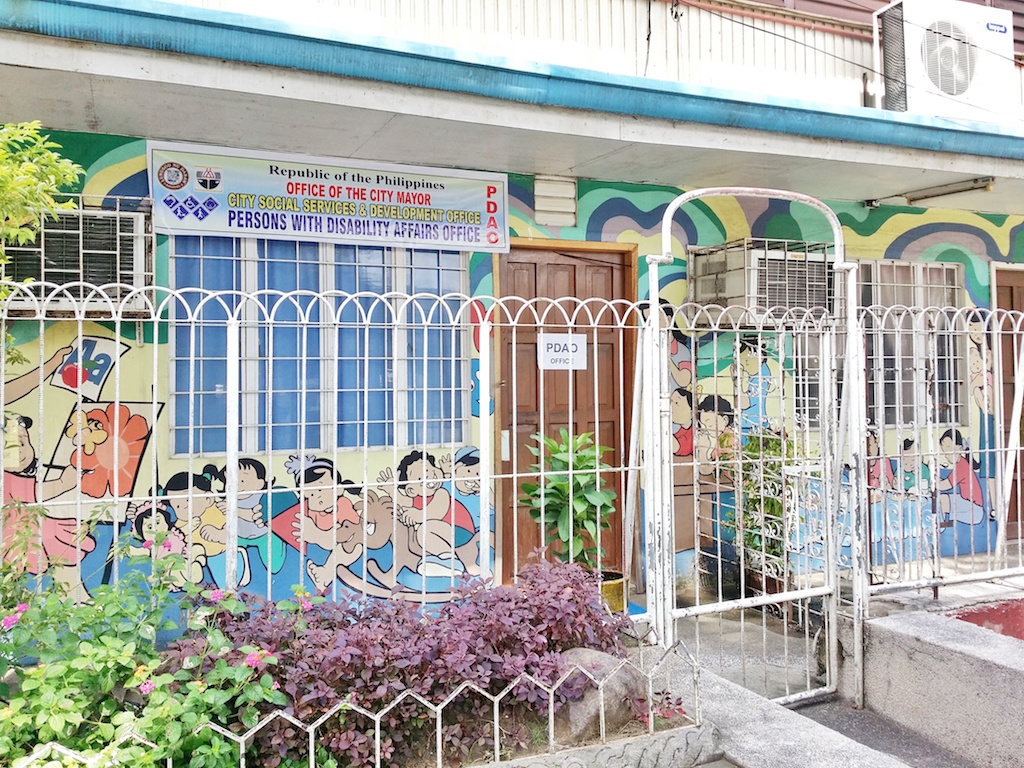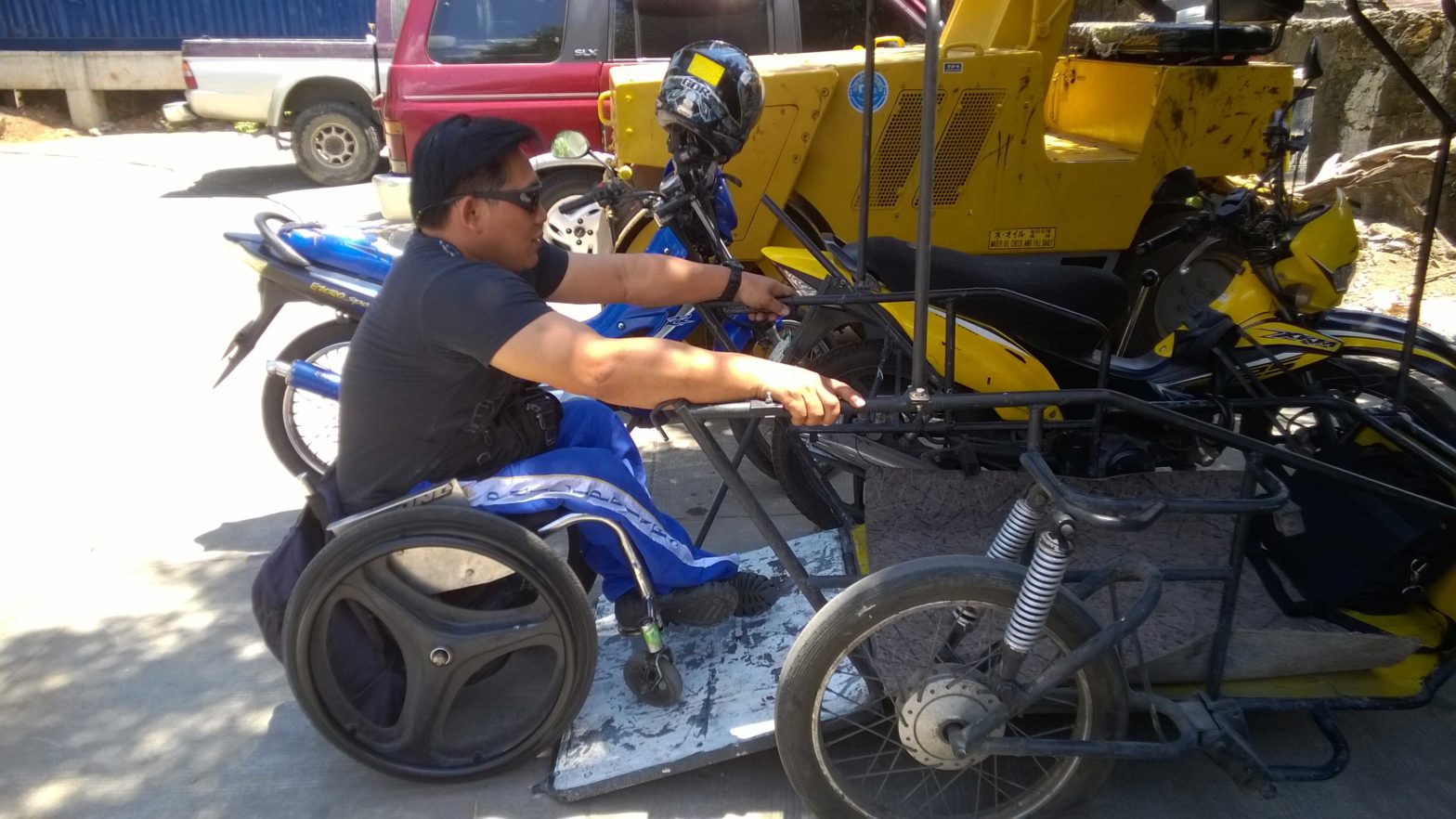By JAKE SORIANO
Early and adequate information dissemination about the planned mall voting next year would be key to its success.
This was what persons with disabilities (PWDs) told the Commission on Elections (Comelec) during a public consultation Friday, while expressing general support for the initiative.
“The general feeling of persons with disabilities is that they are in favor of having this mall voting,” said Oscar Taleon of the Alyansa ng may Kapansanang Pinoy (AKAP-Pinoy), a cross-disability federation of organizations in the country.
He urged the Comelec to inform PWD voters early to avoid confusion on election day itself.
“Hindi pa talaga alam ng karamihan kung saan sila pupunta: sa mall o sa kanilang dating polling place [Voters are yet to know where to go on election day: in nearby malls or in their old polling places],” Taleon said.
Comelec chair Andres Bautista, who presided over the consultation, said that the commission would inform voters months before the May presidential elections.
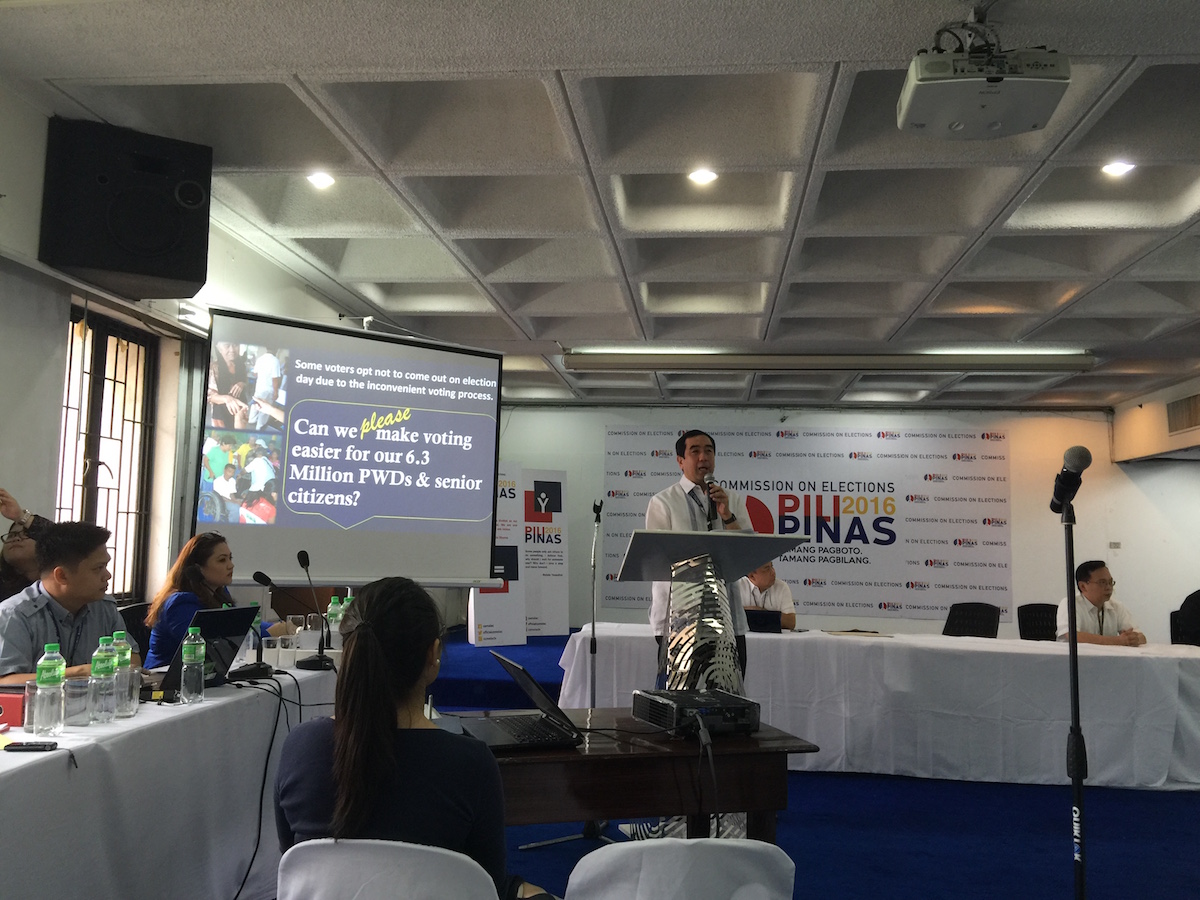
“Ang binigay po naming deadline sa aming schedule ay December 15, maitukoy na kung anong mga presinto ang dapat ilipat [We have set a December 15 deadline for identifying which precincts would be transferred to malls],” Bautista said.
“Magkakaroon tayo ng [We will conduct an] information and dissemination campaign,” he said.
Comelec had earlier approved mall voting “in principle” and is determined on implementing it in 2016, but is still ironing out the details.
In early November, it walked the media through a mock polling place in Eastwood Mall, showing off accessibility features. (See Voting precincts with huge PWD population may be moved to malls)
“Hindi kami basta basta maglilipat [We will not just randomly transfer precincts],” said Bautista, explaining that factors to consider include proximity to malls and the volume of PWD and senior citizen voters in a precinct.
He repeatedly maintained that mall voting is specifically targeted for elderly voters and those with disabilities, to make the exercise more accessible, secure and credible.
“There is a lack of accessible amenities [during elections] particularly for the vulnerable sectors of our society,” he said, adding that malls are modern conveniences that could help improve the voting process.
The Comelec chair also clarified that mall voting will only be able to accommodate some 2 million voters, or some 3.7 percent of the total number of voters registered.
“Kung maging matagumpay, baka sa susunod na halalan, baka mas gumamit tayo ng ganitong lugar [If successful, then there might be more in the following elections],” Bautista said.
The accessibility of information for deaf voters was another issue raised during the consultation.
Carolyn Dagani of the Philippine Federation of the Deaf urged Comelec to use closed captioning in its media announcements to make content accessible to deaf voters. Under this setup, the audio or spoken portion of a television program is displayed as text on the TV screen.
Dagani also asked if sign language interpreters would be present on election day, and who would be responsible for their fees.
To this, Bautista responded, “Simple po yan. Ang magbabayad po ng interpreter ay ang Comelec [It would be Comelec who would pay for interpreters].”
“Yan po ay nakasaad sa batas. Kung kami po ay maghahanap ng interpreter, kami rin po ang magbabayad [That is what the law prescribes. If an interpreter is required, we would shoulder the fees],” he said.
Election lawyer Romulo Macalintal, who was also present in the forum, expressed his support of mall voting.
“Legally speaking, meron hong kapangyarihan ang Commission on Elections na yan ay ipatupad [It is within the powers of Comelec to implement the initiative],” Macalintal said.
He cited Loong vs. Comelec, a 1999 Supreme Court decision giving the Comelec “a considerable latitude” in adopting means to accomplish its task of promoting orderly elections.
“The choice of means taken by the Commission on Elections, unless they are clearly illegal or constitute grave abuse of discretion, should not be interfered with,” wrote former Chief Justice Reynato Puno in the decision.
“Dito, sa tingin ko, walang binabalak na masama. Ito ay sa kabutihan ng lahat [I don’t think Comelec has bad intentions with this initiative. This is for the good of all],” Macalintal said.
Poll watchdog groups Legal Network for Truthful Elections (LENTE) and the Parish Pastoral Council for Responsible Voting (PPCRV) had likewise expressed their general support for mall voting.
Bautista said his office would take in position papers on the issue within five working days after the consultation.
